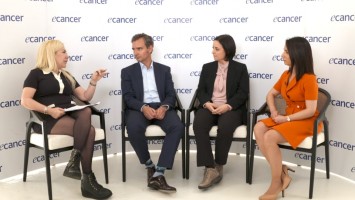So there has some preclinical data and some observational data in other diseases that metformin actually has anti-neoplastic properties. But this has never really been looked at in patients with metastatic renal cell carcinoma specifically and the impact of metformin in patients with RCC. The purpose of this study was to use a large database of clinical trials to actually assess whether metformin use actually impacted outcomes for patients with RCC.
How many patients did you look at? What did you find?
The cohort included over 7,000 patients, of those there was a small percentage of patients who were actually diabetics who were metformin users but when we compared users of metformin to users of other anti-diabetic agents not including metformin we found that there was actually no difference in survival for the total cohort. Additionally we did various subset analyses in patients receiving VEGF targeted therapy, mTOR targeted therapy, interferon therapy and also found no difference with whether patients received metformin versus not. We stratified by risk group as well, by IMDC risk criteria for favourable disease, intermediate disease and poor disease and didn’t find a difference. But where we did see a difference was in patients who were specific users of sunitinib - in patients who used sunitinib and also utilised metformin who were diabetics there was an improvement in overall survival for those users of metformin. This is very hypothesis generating data, you can’t really draw too many conclusions from it but I think it speaks to the fact that there potentially may be some kind of synergism happening with the Sutent, which is a VEGF targeted agent, and metformin, that they may be able to somehow synergise with each other. I think further studies in the preclinical setting are warranted to investigate why is this interaction even happening and probably larger observational studies need to validate these results.








